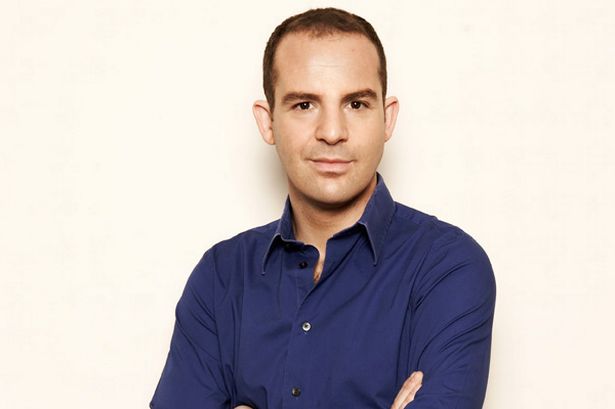The annual rate of house price growth has stayed at 2.1% for the third month running, according to the latest Halifax House Price Index.
This has taken the average price of a UK property to £285,476, which compares to £282,360 in January.
When compared to January, there was a 1.1% increase in house prices through the month of February, although Halifax stated that overall prices are flat compared to three months ago.
Director at Halifax Mortgages, Kim Kinnaird, said that recent reductions in mortgage rates, improving consumer confidence, and a continuing resilience in the labour market are “helping to stabilise prices”, following falls seen in November and December.
However, the Halifax data did also show that house prices fell on a quarterly basis by 2.5%.
“With the cost of a home down on a quarterly basis, the underlying activity continues to indicate a general downward trend,” Kinnaird said.
“In cash terms, house prices are down around £8,500 (-2.9%) on the August 2022 peak but remain almost £9,000 above the average prices seen at the start of 2022 and are still above pre-pandemic levels, meaning most sellers will retain price gains made during the pandemic. With average house prices remaining high, housing affordability will continue to feel challenging for many buyers.”
Halifax’s latest index also indicated that the rate of annual growth slowed in all nations and regions across the UK in February.
Annual growth reduced most significantly in the North East, at 1.1% in February compared to a rise of 3.6% in January, with homes now costing an average £163,953.
Average house prices in London are now £526,842, which is a 0.9% drop from January’s £530,416. Halifax suggested that London may be affected by its large proportion of flats – prices for which have broadly stagnated – although despite this slowdown, homes in the capital still cost over £240,000 more than the UK national average.
Annual growth fell the least in Scotland, where the average house price is now £198,779, a growth rate of 2.2% compared to 2.3% in January. Similarly in Wales, annual growth in February was 1.2%, compared to 1.9% in January, with homes currently costing an average £210,917.
In Northern Ireland, those purchasing the average priced home will now pay £185,009, which reflects an annual growth rate of 5.7%, down 7.0% in January.
Head of personal finance at Hargreaves Lansdown, Sarah Coles, added: “When you drill further into the figures, it’s clear certain parts of the market are pushing the average up, and some are looking pretty miserable. Looking at flats alone, prices are down over the year.
“Meanwhile, when you remove new builds from the equation, overall prices are up around 1% – the smallest rise in almost a decade. Falling or stagnant prices could persuade buyers that a wait-and-see strategy is still worth pursuing.
“The resilience of prices in some corners of the market so far could actually work against sellers, especially now that mortgage rates are higher. A combination of the two – plus higher overall prices feeding into affordability calculations – means that even if buyers are still keen to move, their mortgage company may have other ideas.”
Latest News
-
Residential property transactions fall 24% month-on-month
-
Later life lending loans jump 5.1% in Q4 2025
-
Mortgage Awards 2026: Winners announced
-
FCA outlines proposals to close gaps in borrowers’ credit files
-
St. James’s Place closes 2025 with record FuM
-
Average LTV on UK mortgaged home drops to 59% – IMLA
Mortgage Advice Bureau and AI in the mortgage sector
Chief executive officer at Mortgage Advice Bureau, Peter Brodnicki, and founder and managing director at Heron Financial, Matt Coulson, joined content editor Dan McGrath to discuss how Mortgage Advice Bureau is using artificial intelligence to make advancements in the mortgage industry, the limitations of this technology and what 2026 will hold for the market
Perenna and the long-term fixed mortgage market

Content editor, Dan McGrath, spoke to head of product, proposition and distribution at Perenna, John Davison, to explore the long-term fixed mortgage market, the role that Perenna plays in this sector and the impact of the recent Autumn Budget
NEW BUILD IN FOCUS - NEW EPISODE OF THE MORTGAGE INSIDER PODCAST, OUT NOW

Figures from the National House-Building Council saw Q1 2025 register a 36% increase in new homes built across the UK compared with the same period last year, representing a striking development for the first-time buyer market. But with the higher cost of building, ongoing planning challenges and new and changing regulations, how sustainable is this growth? And what does it mean for brokers?
Does the North-South divide still exist in the UK housing market?

What do the most expensive parts of the country reveal about shifting demand? And why is the Manchester housing market now outperforming many southern counterparts?
In this episode of the Barclays Mortgage Insider Podcast, host Phil Spencer is joined by Lucian Cook, Head of Research at Savills, and Ross Jones, founder of Home Financial and Evolve Commercial Finance, to explore how regional trends are redefining the UK housing, mortgage and buy-to-let markets.
In this episode of the Barclays Mortgage Insider Podcast, host Phil Spencer is joined by Lucian Cook, Head of Research at Savills, and Ross Jones, founder of Home Financial and Evolve Commercial Finance, to explore how regional trends are redefining the UK housing, mortgage and buy-to-let markets.
© 2019 Perspective Publishing Privacy & Cookies











Recent Stories